News
AG urged to set up new mechanism to monitor HR violations

Sanjay Rajaratnam pays a courtesy call on PM Mahinda Rajapaksa yesterday (1)
The newly appointed Attorney General Sanjay Rajaratnam, PC, assumes duties at a critical time with the United Nations High Commissioner for Human Rights (UN-HCHR) having got the special mandate of the 46th session of the United Nations Human Rights Council (UN-HRC) in March this year to set up a special mechanism to monitor Sri Lanka’s alleged human rights violations and alleged war crimes during the final phase of the separatist war that ended in 2009, former PA National List MP M.M. Zuhair, PC says.
Zuhair, who served the AG’s department as a State Counsel and later as Senior State Counsel at a time it was comparatively smaller, said so in response to The Island query regarding the growing challenge on the human rights front.
Zuhair has sent us the following response to our queries: “The office of the Attorney General of Sri Lanka has a 137 year history, beginning from Sir Francis Fleming on 1st January 1884. The Attorney General carries with him unique responsibilities though the world outside sees him as exercising exclusive powers. He is the principal law officer of the State, legal adviser to the President of the Republic, the Speaker of Parliament and the executive, having specific Constitutional powers, duties and functions, advocate of the supremacy of the Constitution and the rule of law, having powers to initiate criminal proceedings and present indictments, the leader of the Bar with specified rights to be heard in all courts and defender of the State in civil proceedings. He is a member of the executive but functions independently of the executive in all legal matters, subject however to the jurisdiction of the Courts in specified issues.
The report of the High Commissioner for Human Rights has drawn special attention of the UN HRC to several significant matters relating to Sri Lanka. They include inter alia ‘reversal of Constitutional safeguards’, ‘majoritarian and exclusionary rhetoric, ‘new and exacerbated human rights concerns’, ‘impunity in emblematic cases’, etc. The UN HCHR has in the report taken a further step by requesting Member States, in addition to taking steps of referral of Sri Lanka to the International Criminal Court (ICC) to actively pursue “investigations and prosecution of international crimes committed by all parties in Sri Lanka before their own national courts, including under accepted principles of extraterritorial or universal jurisdiction” (emphasis mine).
The report also points out that “Member States can also apply targeted sanctions, such as asset freezes and travel bans against State officials and other actors credibly alleged to have committed or be responsible for grave human rights violations or abuses…” The addition of the two special procedures may be due to, the referral to ICC very likely being vetoed in the Security Council!
Another critical development is that a resolution is already before the United States Congress recommending the US to explore investigations and prosecutions pursuant to the recommendations of the UN HCHR. The proposed resolution is wide enough to pursue inter alia the two courses of actions referred to earlier at the Member State level of the US government. This would also encourage other traditional allies of the US to join hands with similar Member State level approvals, without recourse to any further UN HRC approval!
So the time has come for the new Attorney General Sanjay Rajaratnam PC to set up a special high level unit in the department to handle the man-made tsunami that will very likely rattle the country on the legal and economic fronts much sooner than the HRC process.
Amongst the matters in the UN HCHR’s list are the alleged “erosion of the judiciary and key institutions responsible for the promotion and protection of human rights; … policies that adversely affect the right to freedom of religion or belief; increased marginalization of persons belonging to the Tamil and Muslim communities; surveillance and intimidation of civil society; … arbitrary detentions”, etc.
Another matter is the need to address the undertaking given to repeal the Prevention of Terrorism (Temporary Provisions) Act (PTA) enacted in 1979 and replace same with a new law in line with accepted human rights norms. The controversial law itself provides for a maximum detention of 18 months, whereas a large number of persons arrested under the PTA over the Mawanella Buddha statue damaging case as well as over the Easter Sunday attacks have been kept in remand for over two years, in violation of the PTA’s maximum period of one and a half years, through a process arguably violative of the human rights of the suspects.
There are many persons in remand who could have been enlarged on bail with the consent of the Attorney General and against whom the alleged material is weak and insufficient for prosecution. There are still others who ought to have been discharged because they have had nothing to do with 21/4 attacks. The PTA provides in section 19, that the bail provisions of other written laws (excluding the Bail Act as provided in the Bail Act) will not be applicable only to persons convicted under the PTA. But suspects are not granted bail by Magistrates Court, in violation of the bail provisions in the Code of Criminal Procedure Act read with section 19 of the PTA itself, with Courts insisting on AG’s consent as required by another provision in the PTA, which is in conflict with section 19.
The UN HCHR could review likely human rights violations by the alleged unreasonable refusal of the Attorney General and the Courts to consent to bail in weak cases. These are areas that must be addressed forthwith by the Attorney General’s special unit to prevent officers and their families being adversely affected by Member States’ targeted actions, particularly because indictments are delayed, largely because of incomplete investigations!
Another matter that will require the immediate attention of the new Attorney General who counts over 34 years in the department is the continuing arrests of persons with alleged links to one suicide bomber or the other without any evidence of their being party to or in any way conspired, prepared, aided and/or abetted in the 21/4 attacks. Suicide bombers may have had links with persons of all communities for years before the Easter attacks. Those numbers can run into several thousands. But they do not become suspects in the 21/4 attacks by any legal yardstick merely because they had at some point crossed the future bombers. These arrests may be perceived as illegal arrests targeting the minorities.
The 48th Attorney General will certainly address the matters that come before him from the national interest perspective and not from any minoritarian angle! My interest is limited to securing justice within the rule of law for the country and for all its people.” (SF)
Latest News
India vs Pakistan match is a godsend for T20 World Cup hosts Sri Lanka
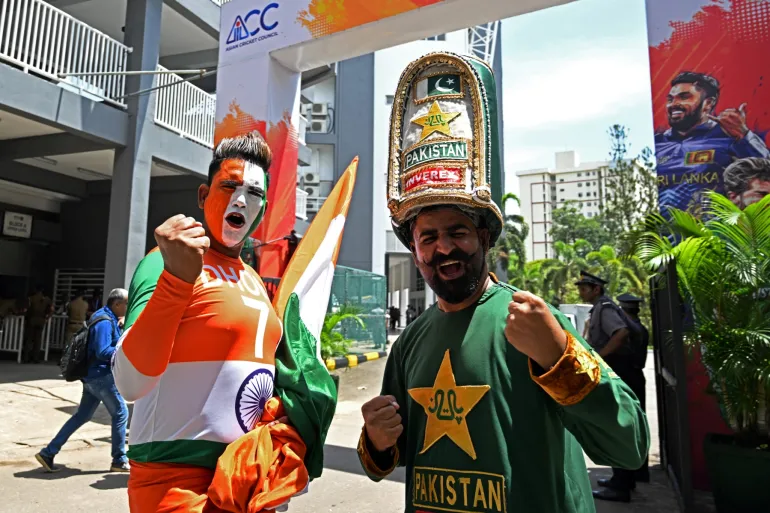
Almost 30 years ago today, India and Pakistan formed a combined cricket team to take on Sri Lanka ahead of the 1996 Cricket World Cup in an unprecedented moment of unity in the sport’s history.
The two age-old rivals put aside their differences and came together in an act of solidarity to support a fellow South Asian team, who faced the threat of match boycotts in a tournament they had battled hard to host.
India versus Pakistan is the most highly marketed fixture at every multination tournament – the World Cup, Asia Cup or Asian Games – whether it’s a men’s, women’s or Under-19 event.
Few sporting events globally carry the weight and anticipation of an India-Pakistan cricket match. So, when Pakistan’s government ordered its team not to face India at the ongoing T20 World Cup, the tournament was briefly pushed into a state of chaos.
It also left Sri Lanka, the designated host of the fixture, holding its collective breath.
A week of negotiations led to a dramatic late U-turn by the Pakistani government and the match will now take place as scheduled on Sunday at the R Premadasa International Cricket Stadium in Colombo.
But what if the boycott had gone ahead? The impact could have been catastrophic, not just for Pakistan, but also for the International Cricket Council (ICC), as well as Sri Lanka.
With the crisis seemingly averted, the island nation stands poised to reap the benefits in its financial landscape, diplomatic standing and community.
The tourism and hospitality industry was one of the hardest hit during Sri Lanka’s financial meltdown and this match will see an enormous influx of fans from India and Pakistan coming into the country.
Hotels in and around Colombo were fully booked out well ahead of the tournament but the industry braced itself for heavy losses after Pakistan threatened a boycott.
“There’s been a massive impact since the boycott was announced,” Sudarshana Pieris, who works in Sri Lanka’s hospitality sector, told Al Jazeera.
“All major hotels in Colombo were fully booked by Indian travel agencies well ahead of the match and once the boycott was announced, we lost almost all of those bookings,” he said.
“But after Pakistan reversed their decision, hotel room rates shot up by about 300-400 percent at five-star establishments in Colombo.”
It’s not just hotels but several other local businesses – from street vendors to high-end restaurants – who are hoping for an increased footfall and spending over the weekend.
These short trips and the experiences they offer could influence visitors to extend their stay or return to Sri Lanka on holiday, long after the game has ended, in a potential long-term benefit to the industry.
Another relatively underestimated impact of the game would be the employment opportunities it creates, albeit temporarily, in the media, event management, security and transportation industries.
Asanka Hadirampela, a freelance journalist and broadcaster currently working as a Sinhala language commentator for the World Cup, recognises the marquee match as a great opportunity from a personal standpoint.
“This is my first World Cup as a broadcaster,” Hadirampela said.
“The India-Pakistan fixture is the biggest and most-watched game of the tournament. So to get to work on such a match is exciting and I consider it a special achievement.”
The lines are always blurred between sport and politics in South Asia.
So while the financial gains are expected to be significant, the fixture’s impact on the region’s geopolitical environment cannot go amiss.
Pakistan’s boycott, too, was explicitly political, as confirmed by the country’s Prime Minister Shehbaz Sharif when he said that they were offering support to Bangladesh after the Tigers were kicked out of the tournament by the ICC.
The reversal of Pakistan’s decision, which they said came after requests to reconsider the boycott by several regional “friends”, was steeped in politics, too.
Sri Lanka’s President Anura Kumara Dissanayake reportedly had a phone conversation with PM Sharif, urging his government to rethink their decision to boycott the game as the successful staging of this encounter would not only position Sri Lanka as a capable host of global sporting events but also reinforce its standing as a neutral mediator in a region fraught with geopolitical complexities.
Sri Lanka and Pakistan have always maintained strong diplomatic relations, which have extended to the cricket field as well.
Sri Lanka were one of the first teams to travel to Pakistan following their 10-year ostracisation from international cricket, which came as a result of a terrorist attack targeting the Sri Lankan team in March 2009.
When Al Jazeera reached out to Sri Lanka Cricket (SLC), its vice president Ravin Wickramaratne confirmed that SLC did, indeed, reach out to the Pakistan Cricket Board (PCB) after the boycott was announced.
“We asked them to reconsider the decision,” Wickramaratne said.
“It [boycott] would have impacted Sri Lanka economically, whether directly or indirectly.
“We have always had a good relationship with the PCB and we have always supported them, so we’re happy with their decision.”
A little over 24 hours ahead of the match in Colombo, there is a sense of palpable excitement and a growing buzz around the fixture as it returns from the brink of cancellation.
As of Saturday morning, 28,000 tickets had been sold for the game but local organisers expect a capacity crowd of 40,000 to make it into the stands.
Come Sunday, thousands more will line the streets in and around Maligawatte, the bustling Colombo suburb that houses the famous Premadasa Stadium.

Business
“We Are Building a Stable, Transparent and Resilient Sri Lanka Ready for Sustainable Investment Partnerships” – PM
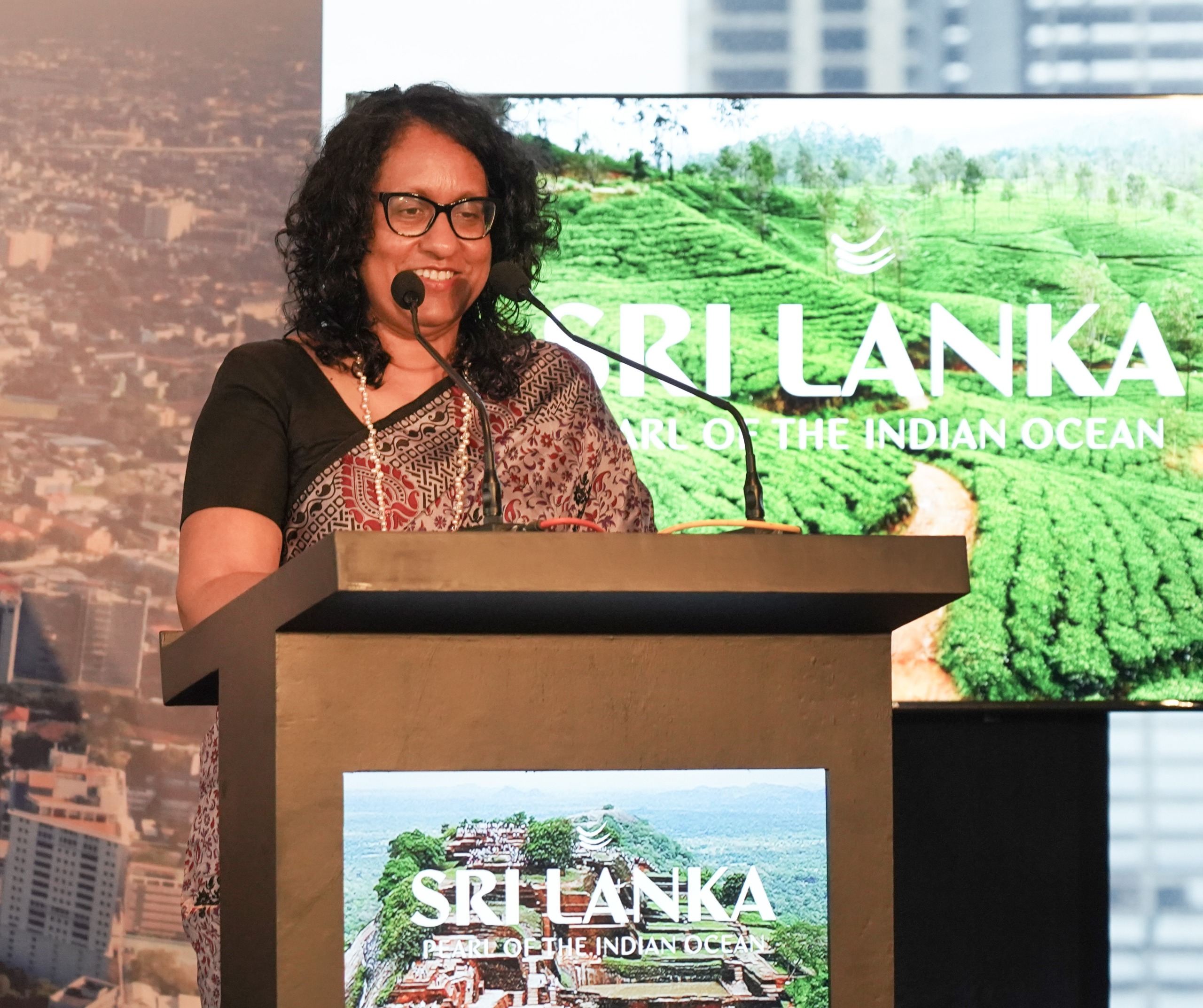
Prime Minister Dr. Harini Amarasuriya addressed members of the Chief Executives Organization (CEO) during a session held on Thursday [3 February 2026] at the Shangri-La Hotel, Colombo, as part of CEO’s Pearl of the Indian Ocean: Sri Lanka programme.
The Chief Executives Organization is a global network of business leaders representing diverse industries across more than 60 countries. The visiting delegation comprised leading entrepreneurs and executives exploring Sri Lanka’s economic prospects, investment climate, and development trajectory.
Addressing the gathering, the Prime Minister emphasized that Sri Lanka’s reform agenda is anchored in structural transformation, transparency, and inclusive growth.
“We are committed not only to ensuring equitable access to education, but equitable access to quality education. Our reforms are designed to create flexible pathways for young people beyond general education and to build a skilled and adaptable workforce for the future.”
She highlighted that the Government is undertaking a fundamental pedagogical shift towards a more student-focused, less examination-driven system as part of a broader national transformation.
Reflecting on Sri Lanka’s recent political transition, the Prime Minister stated:
“The people gave us a mandate to restore accountability, strengthen democratic governance, and ensure that opportunity is not determined by patronage or privilege, but by fairness and merit. Sri Lanka is stabilizing. We have recorded positive growth, restored confidence in key sectors, and are committed to sustaining this momentum. But our objective is not short-term recovery it is long-term resilience.”
Addressing governance reforms aimed at improving the investment climate, she said:
“We are aligning our legislative and regulatory frameworks with international standards to provide predictability, investor protection, and institutional transparency. Sustainable investment requires trust, and trust requires reform.”
Turning to the recent impact of Cyclone Ditwa, which affected all 25 districts of the country, the Prime Minister underscored the urgency of climate resilience.
“Climate change is not a distant threat. It is a lived reality for our people. We are rebuilding not simply to recover, but to build resilience, strengthen disaster mitigation systems, and protect vulnerable communities.”
Inviting CEO members to consider Sri Lanka as a strategic partner in the Indo-Pacific region, she highlighted opportunities in value-added mineral exports, logistics and shipping, agro-processing, renewable energy, pharmaceuticals, and innovation-driven sectors.
“We are not looking for speculative gains. We are seeking long-term partners who share our commitment to transparency, sustainability, and inclusive development.”
She further emphasized collaboration in education, research, vocational training, and innovation as essential pillars for sustained economic growth.
Concluding her address, the Prime Minister expressed appreciation to the Chief Executives Organization for selecting Sri Lanka as part of its 2026 programme and reaffirmed the Government’s readiness to engage constructively with responsible global investors.
The event was attended by the Governor of the Western Province, Hanif Yusoof, and other distinguished guests.
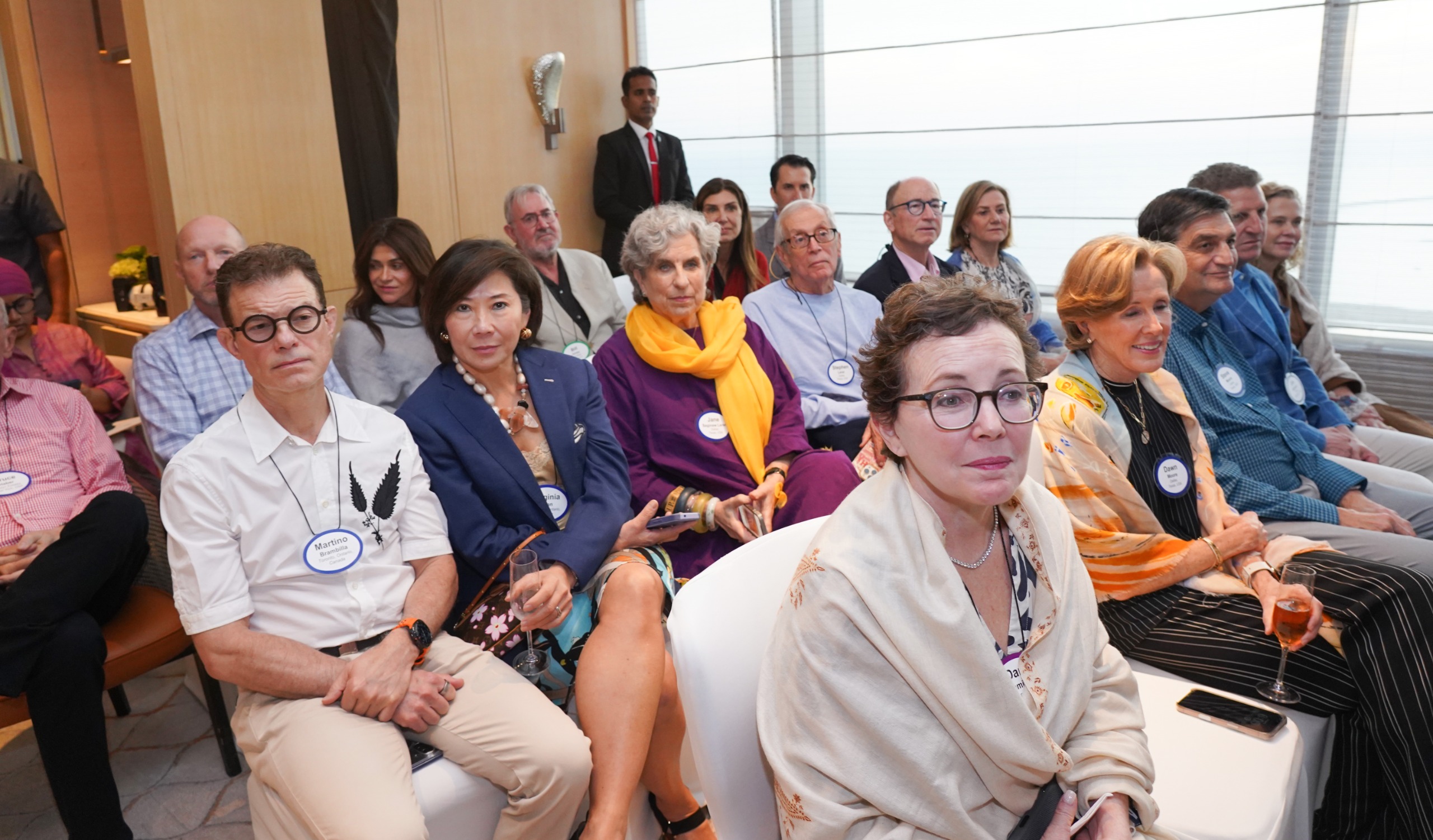
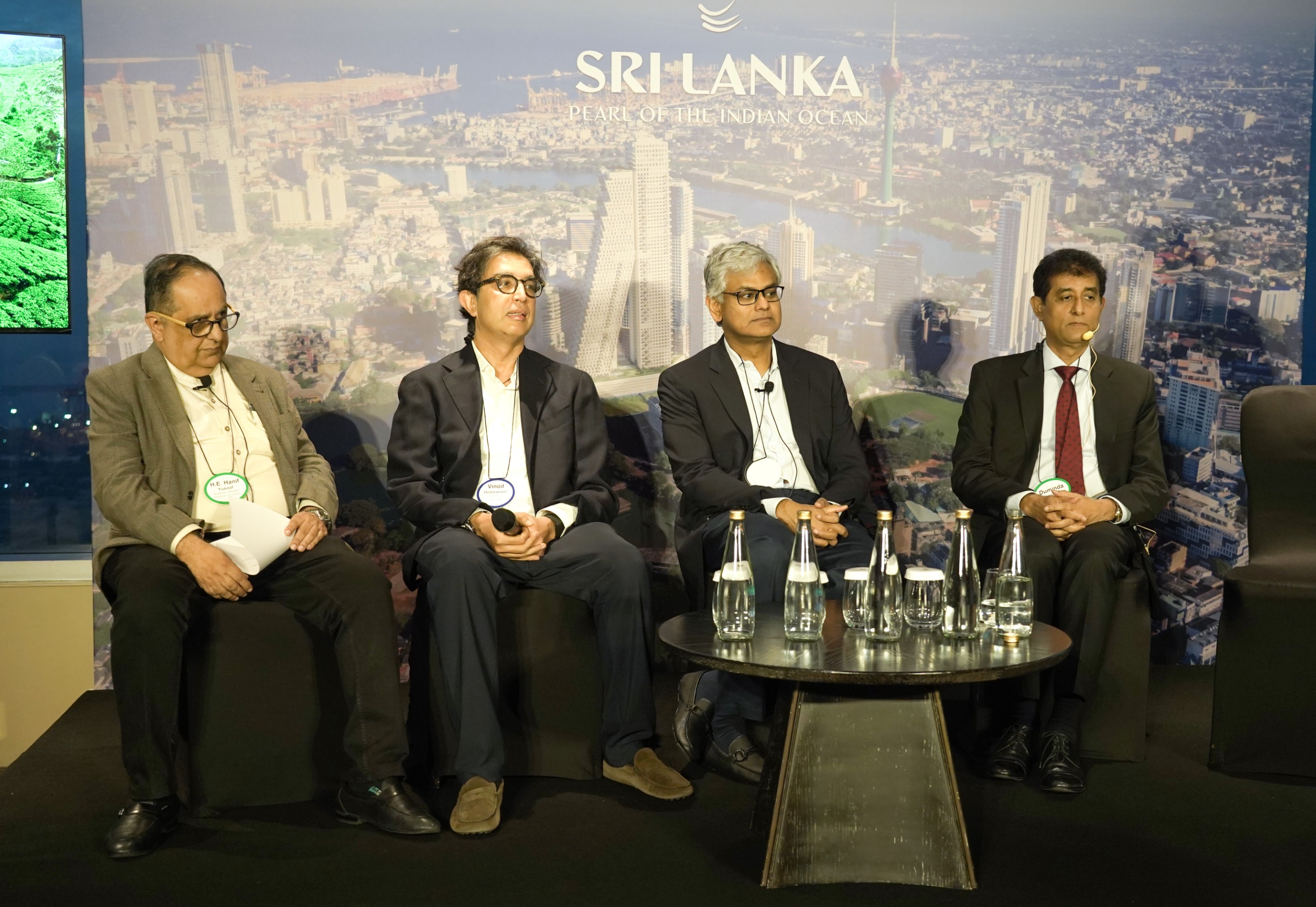
[Prime Minister’s Media Division]
News
Prez AKD congratulates BNP’s Tarique Rahman on B’desh election win
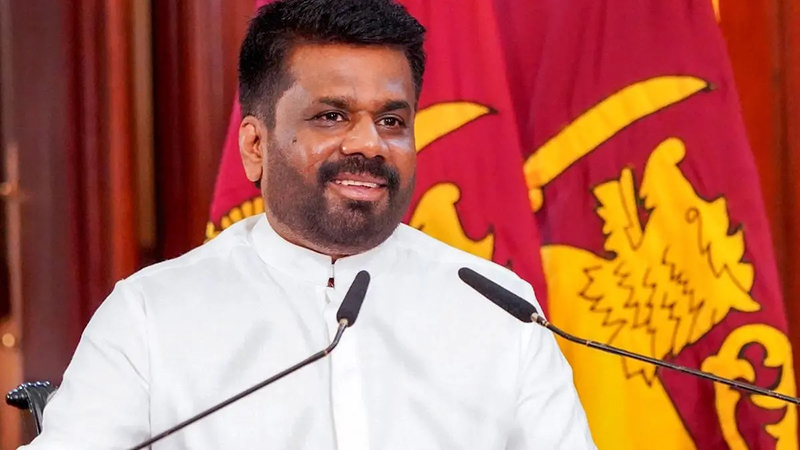
President Anura Kumara Dissanayake has extended his congratulations to the Bangladesh Nationalist Party (BNP) and its leader, Tarique Rahman, following their landslide victory in Bangladesh’s parliamentary elections.
“Best wishes to the people of Bangladesh for reaffirming their faith in democracy, and congratulations to Mr. Tarique Rahman on leading the BNP in these elections. The results reflect the trust placed in him. I look forward to strengthening ties between our two nations,” President Dissanayake said, in a post on ‘X’.
The Bangladesh Nationalist Party won a landslide parliamentary election on Friday, securing a resounding mandate in a pivotal vote that is expected to restore political stability in the South Asian nation.
The parliamentary election held on Thursday was Bangladesh’s first vote since the 2024 Gen Z-driven uprising that toppled long-time premier Sheikh Hasina.
Opinion polls had given BNP an edge, and the party lived up to the forecasts, with the coalition it dominates winning 209 seats to secure an overwhelming two-thirds majority in the 300-member Jatiya Sangsad, or House of the Nation, Jamuna TV showed.
Soon after it won a majority in the overnight vote-count, the party thanked and congratulated the people and called for special prayers on Friday for the welfare of the country and its people.
-

 Business4 days ago
Business4 days agoAutodoc 360 relocates to reinforce commitment to premium auto care
-

 Midweek Review4 days ago
Midweek Review4 days agoA question of national pride
-

 Opinion3 days ago
Opinion3 days agoWill computers ever be intelligent?
-

 Midweek Review4 days ago
Midweek Review4 days agoTheatre and Anthropocentrism in the age of Climate Emergency
-

 Editorial6 days ago
Editorial6 days agoThe JRJ syndrome
-

 Features11 hours ago
Features11 hours agoThe Rise of Takaichi
-
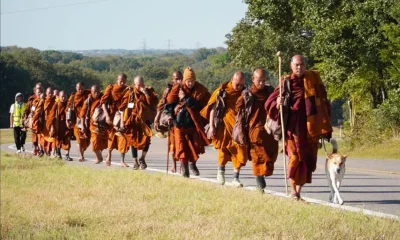
 Opinion4 days ago
Opinion4 days agoThe Walk for Peace in America a Sri Lankan initiative: A startling truth hidden by govt.
-
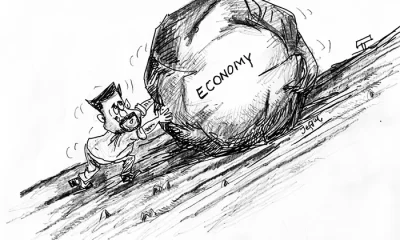
 Opinion5 days ago
Opinion5 days agoBeyond 4–5% recovery: Why Sri Lanka needs a real growth strategy













